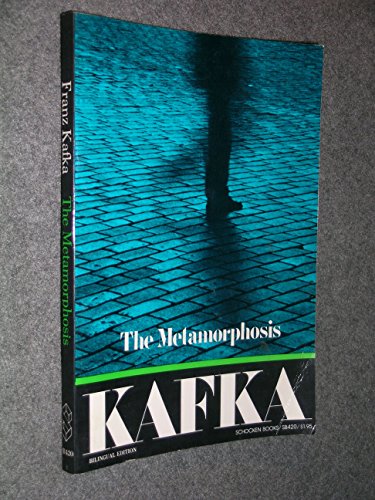Kafka
The Metamorphosis
Franz Kafka
BOOK REVIEW

In The Metamorphosis, Franz Kafka grips your soul from the very first line, thrusting you into the surreal and horrifying life of Gregor Samsa, an ordinary man who awakens one morning to find himself transformed into a monstrous insect. This visceral metamorphosis stands not only as a unique twist of fate but also as a relentless exploration of isolation, existential dread, and the alienation of modernity. A mere tale? No, it's a deep dive into the abyss of human vulnerability and societal rejection.
Kafka, writing from the shadowy backdrop of early 20th-century Europe, channels a profound sense of anxiety that resonates through the ages. His life, punctuated by struggles with health, family pressures, and societal expectations, feeds into the themes of his work. It's as if his personal demons sway relentlessly within the narrative, compelling you to question your own existence, your identity - who am I when stripped of societal roles?
The sheer absurdity of Gregor's plight will gnaw at your conscience. As he grapples with his new form, his family's initial shock devolves into shame and neglect. Imagine the gut-wrenching despair as he realizes that his grotesque transformation becomes a mirror reflecting the very ugliest aspects of humanity - selfishness, blame, and the fragile bonds of kinship. It's a relentless echo of the fear we all harbor: the dehumanizing tendencies of those we love when faced with the horrific unknown, leading you to ponder, how would I react?
Readers have passionately engaged with this piece across the globe, eliciting heated debates. Some argue it's a masterclass in existential literature, illustrating the absurdity of life and our bleak search for meaning. Others criticize its bleakness, feeling overwhelmed by its grim implications. The debate is not trivial; it's a testament to Kafka's knack for stirring visceral emotions and thoughts that linger long after the final page.
Moreover, cultural pundits have waded into Kafka's universe, analyzing his influences on literature, psychology, and even modern philosophy. Think of how his work propelled the existentialists forward, culminating in an entire lens through which we now view our own humanity. Writers like Albert Camus and Jean-Paul Sartre directly draw from Kafka's well of existential angst, highlighting his indelible impact on 20th-century thought.
In a world teetering on the edge of chaos, The Metamorphosis reminds us of the delicate balance between identity and societal perception. The chilling question remains: when the masks we wear are ripped away, what does our true self look like? Do we embrace it or punish it? This is more than a story; it's a stark confrontation with the essence of human nature that may just compel you to reevaluate your own life.
In the final moments of grappling with Gregor's fate, you might find the weight of Kafka's commentary on our fragile existence too suffocating to ignore. The horrifying transformation isn't merely a physical one; it's an emotional and existential stripping away that elucidates a universal truth that haunts every reader. Will you dare to venture into the world of Kafka and uncover the dark recesses of your own soul? The journey may be challenging, but it promises to be a transformative one. 🌌
📖 Kafka: The Metamorphosis
✍ by Franz Kafka
🧾 127 pages
1986
#kafka #metamorphosis #franz #kafka #FranzKafka